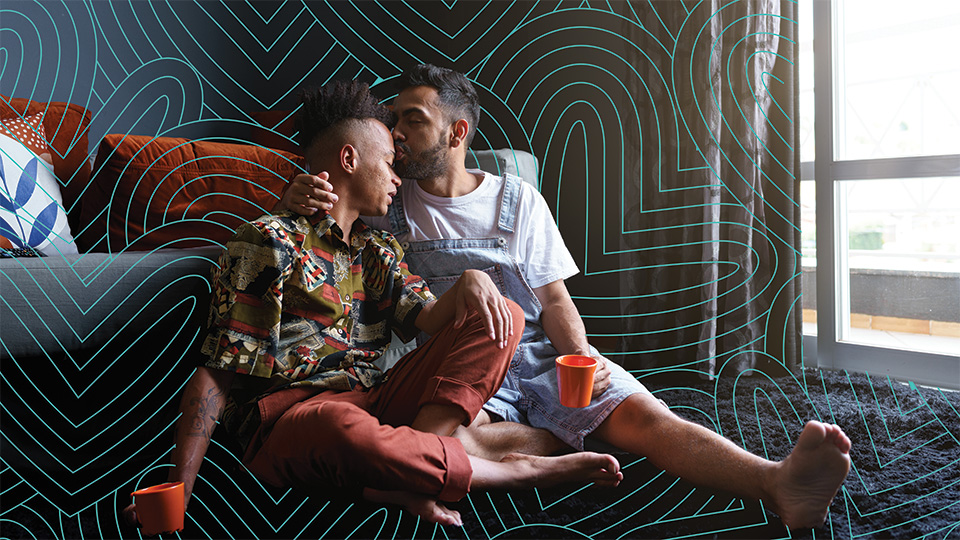By: Ann K. Avery, MD, Infectious Disease Physician at MetroHealth Medical Center
Did you know that the early detection of HIV can make a big difference in one’s health? 🏥 Thanks to an HIV home test, anyone can check their status in the comfort of their own home.
Read on to learn how these tests work, and what steps to take, if it comes up with a positive result. Let's dive in! 🏊
A quick refresher on what HIV is
HIV (Human Immunodeficiency Virus) is a virus that affects the immune system, making it harder for the body to fight off infections and diseases. If not treated, HIV can lead to AIDS (acquired immunodeficiency syndrome).
Catching HIV early means treatment can start sooner, helping people stay healthier! 👏
Types of HIV home tests
There are two main types of HIV home tests you can use:
- Oral Swab Tests: These involve swabbing the inside of your gums to collect a sample.
- Finger Prick Tests: With these, you prick your finger to get a small drop of blood. Both types are easy to use and designed to give accurate results. Let’s take a closer look at how an HIV home test works.
Step-by-step guide
- Read the instructions: Always start by carefully reading the instructions that come with the test kit. 📖
- Collect the sample:
- Oral swab: Gently swab the inside of your gums.
- Finger prick: Use the lancet 🪡 to prick your finger and collect a drop of blood.
- Run the test: follow the kit instructions to process the sample. Usually, this means placing the sample into a testing solution.
- Wait for results: results should appear within 20-40 minutes. ⏳
What to expect
The process is simple, and it takes just a few minutes to collect the sample. After that, you’ll need to wait for the results, which can feel a bit nerve-wracking, but know that it usually takes just 20-40 minutes. ⌛
Watch an episode of your favorite show, have a pretend argument (that you’ll win!) during a long shower, or call a friend to keep you occupied! 🤗
Interpreting results
- Negative results: A negative result means no HIV antibodies were found. If you’ve had a recent exposure, it’s a good idea to test again later. 📅
- Positive results: A positive result means HIV antibodies were detected. It’s important to get a second opinion from a healthcare provider to be sure. ⚕️
What to do if your HIV home test is positive
First, take a deep breath. It’s totally normal to feel a mix of emotions, but remember, a positive result is not the huge life changing event it used to be. There have been massive strides in treatments that allow people with HIV to live long, healthy lives. 🌈
Then, make sure to confirm the result. This means you’ll have to take a trip to the doctor’s office. If you have a primary care doctor, reach out to their office, or go to an urgent care clinic. The lab will use a different type of test, like a Western blot or PCR test, to make sure the initial result is accurate. From there, it’s super important to find a HIV clinic to discuss options. Starting treatment early can help manage the virus and is the first step to living a totally normal life.
Remember, regular medical care and sticking to your treatment plan are key. 💊 To protect others, practice safe sex and know when to inform your partners about your status. Also, talk to your doctor about PrEP to help prevent transmission.
Coping with a positive result
Receiving a positive result is overwhelming. Try to remember that there are awesome treatments out there, and with support, you’ll live a long and healthy life. Taking your medicine means you’ll reach U=U, which can make everything feel a little better, too.
If you’re feeling a bit heavy, talk to someone you trust, whether it’s a friend, family member, or therapist. Sharing your feelings can make a big difference.
Check out Positive Peers as well, to connect with others and find the help you need (more on that later). 🌟
Resources and support networks
There are many organizations that offer support for people living with HIV, and connecting with others who understand what you’re going through can be incredibly helpful. Some great resources include:
- The Well Project
- POZ.com
- TheBody.com
- HIV.gov
- Local support groups and online communities: There are loads of communities all around the world ready to welcome you and provide support. Check what’s in your area or go the digital route with apps like Positive Peers to find an online community. 💖📱
If you or someone you love gets a positive result, remember that no one is alone and that effective treatments are available. Early detection and treatment is making a huge difference and completely changing the game for everyone. 💪 Share this information with friends and loved ones to help spread awareness and encourage early testing.
If you or someone you know is dealing with HIV, Positive Peers is here to help. Join the app to get support, resources, and a community for people living with HIV. Download the app today for a safe space to connect and find support. 💖📱
